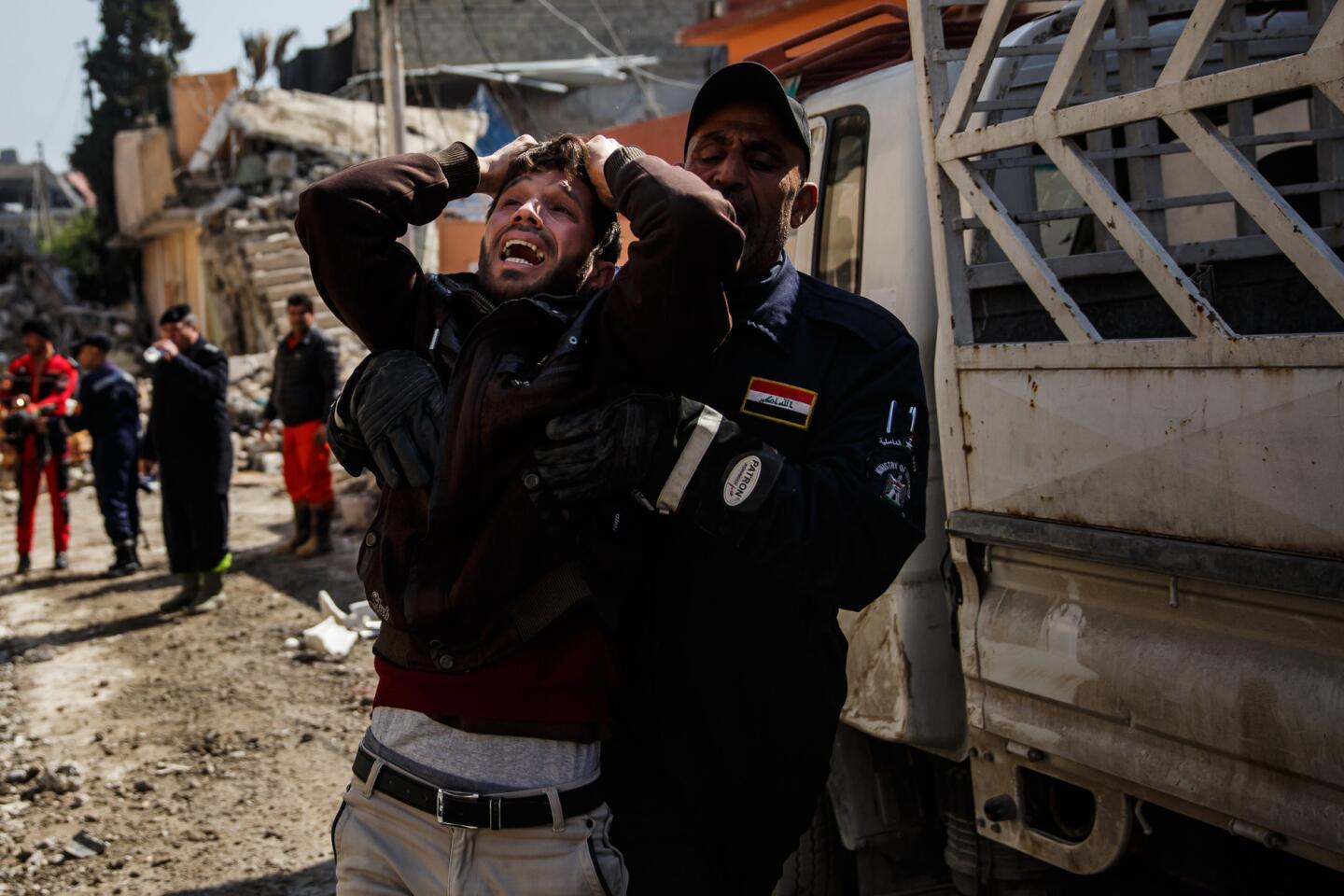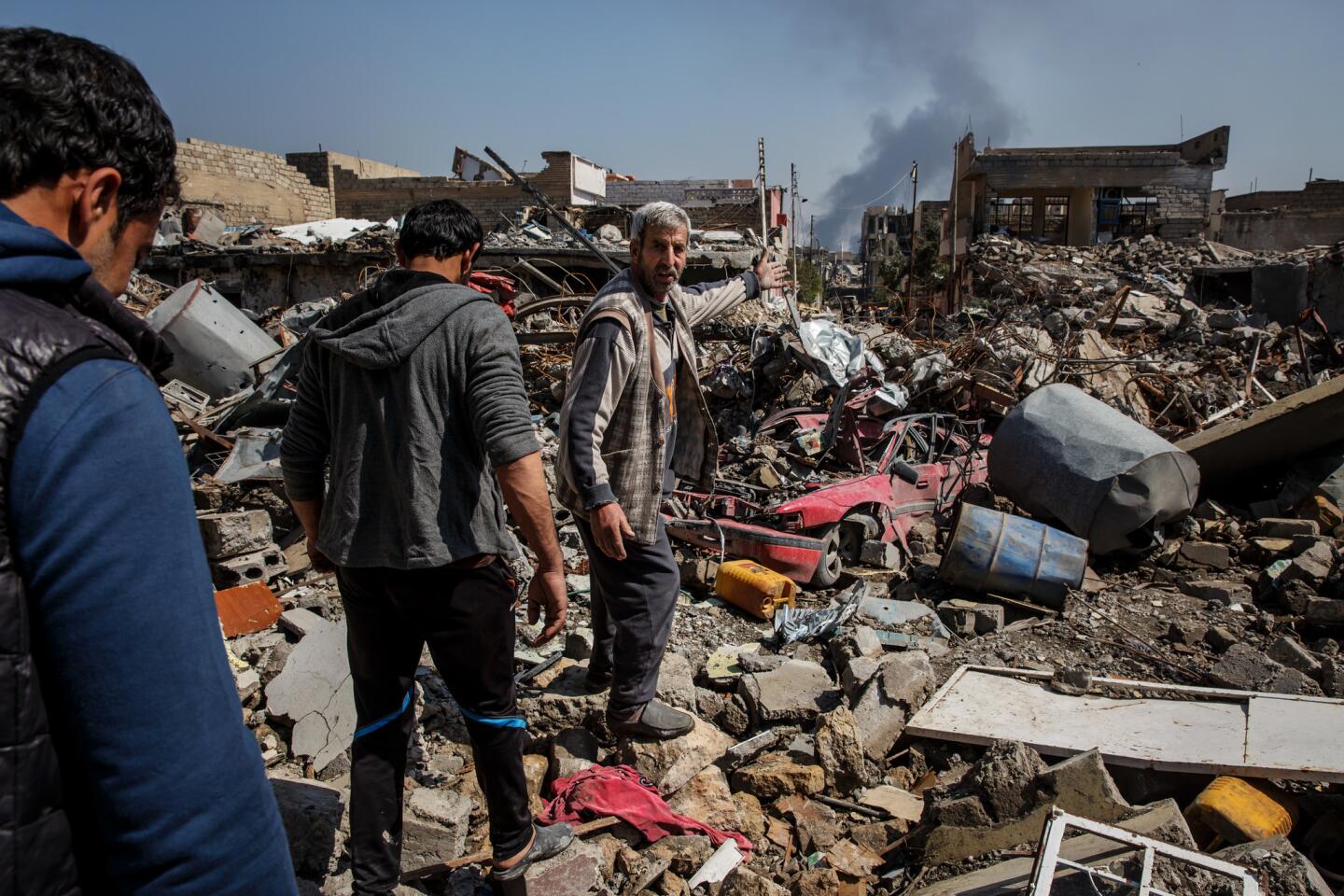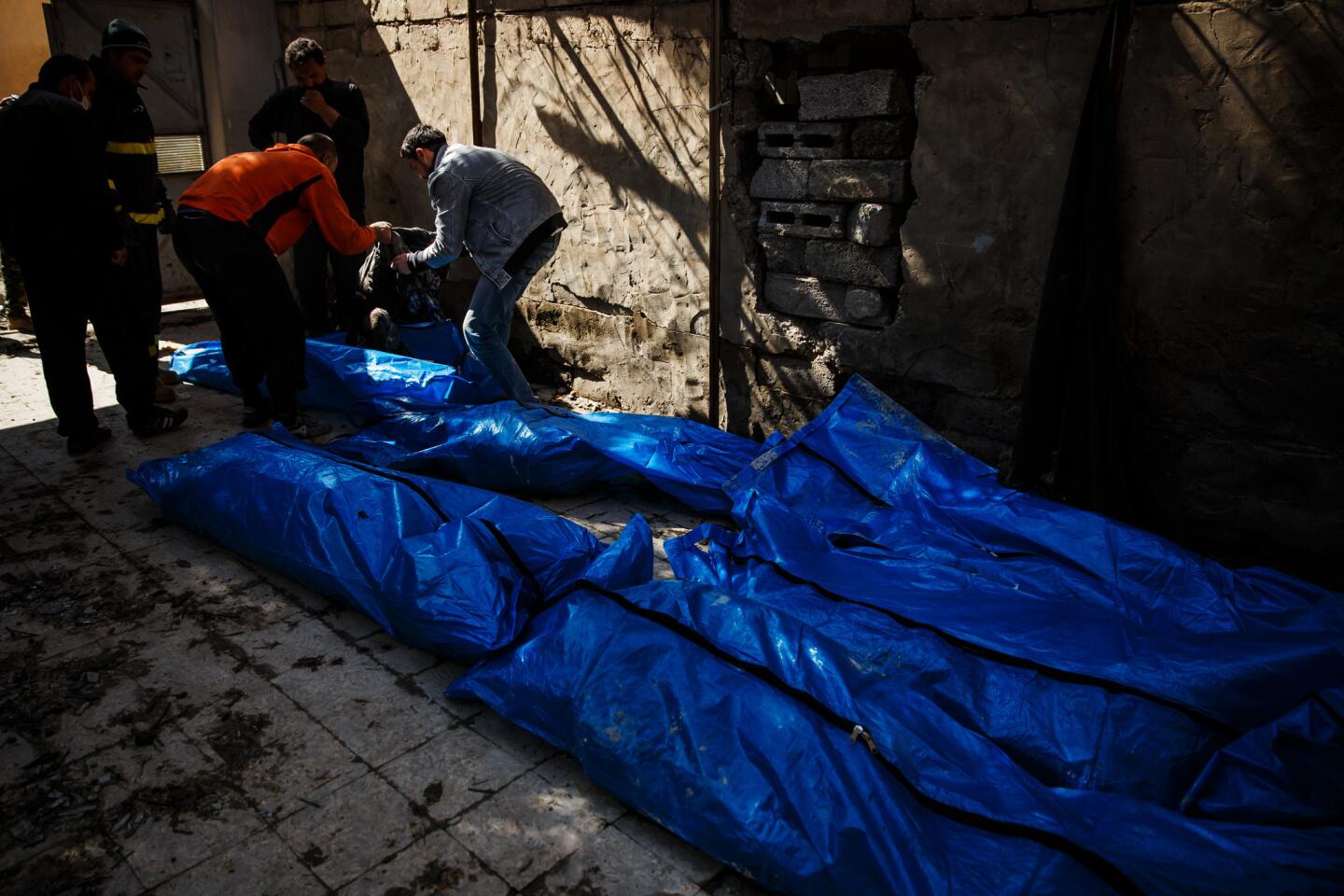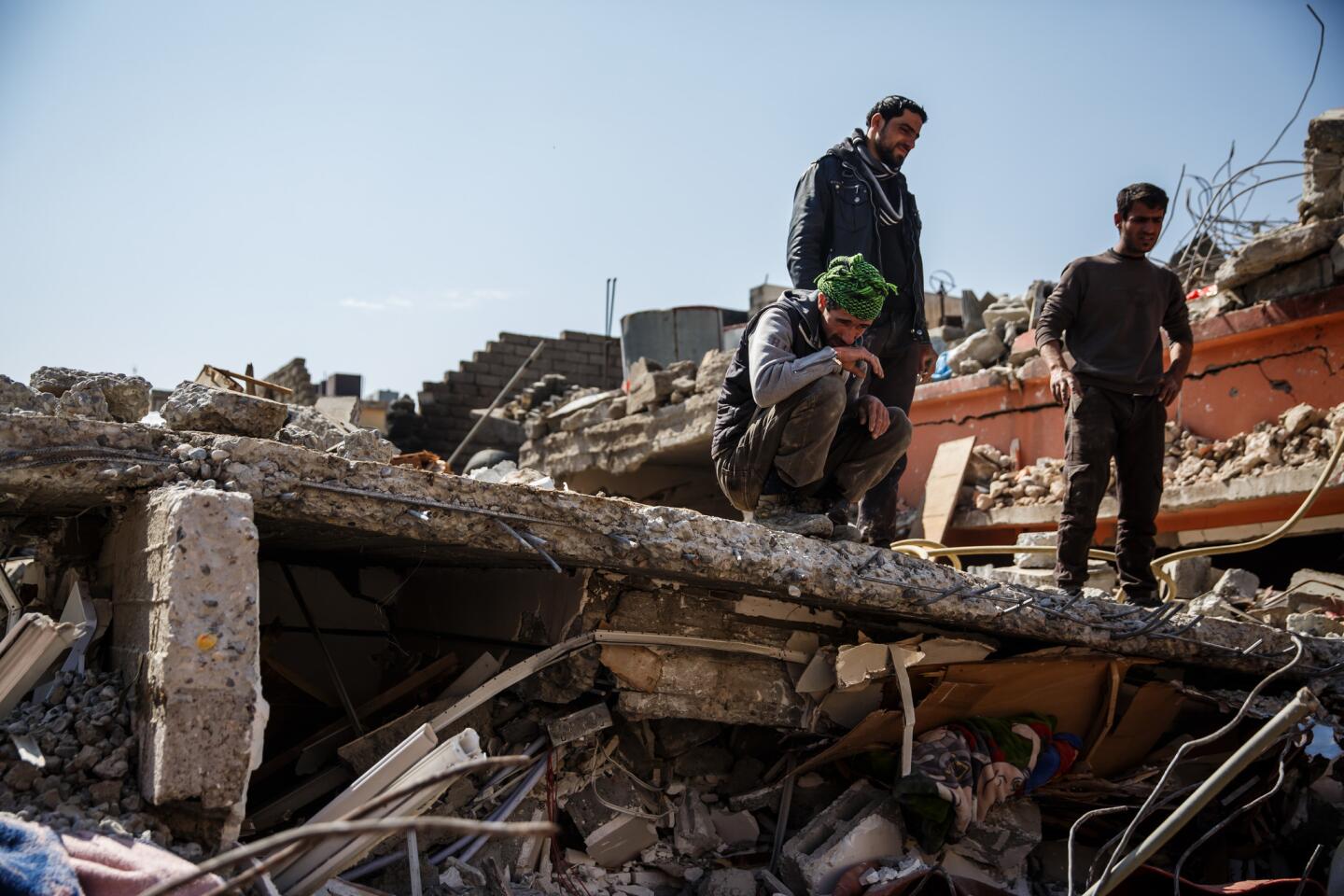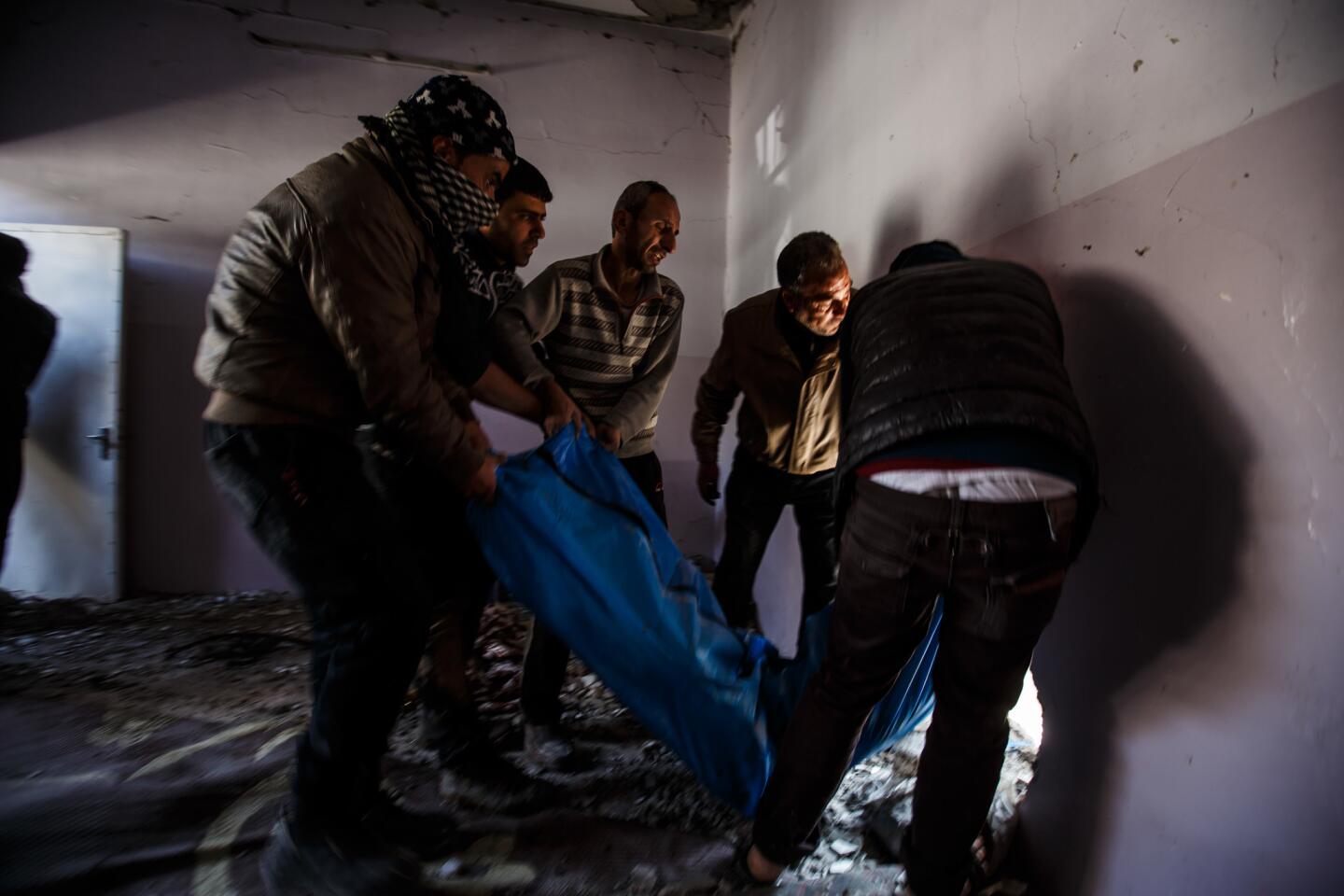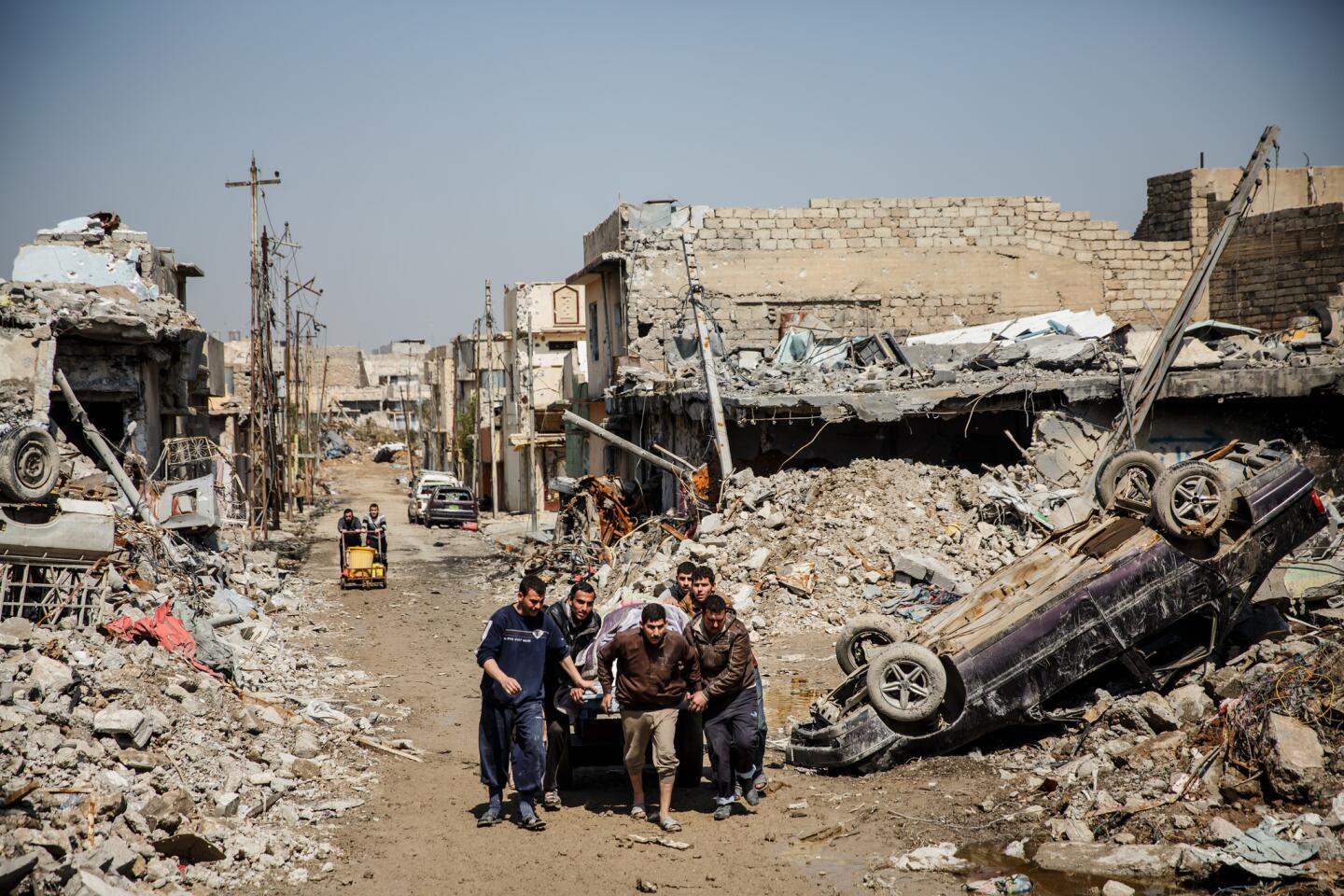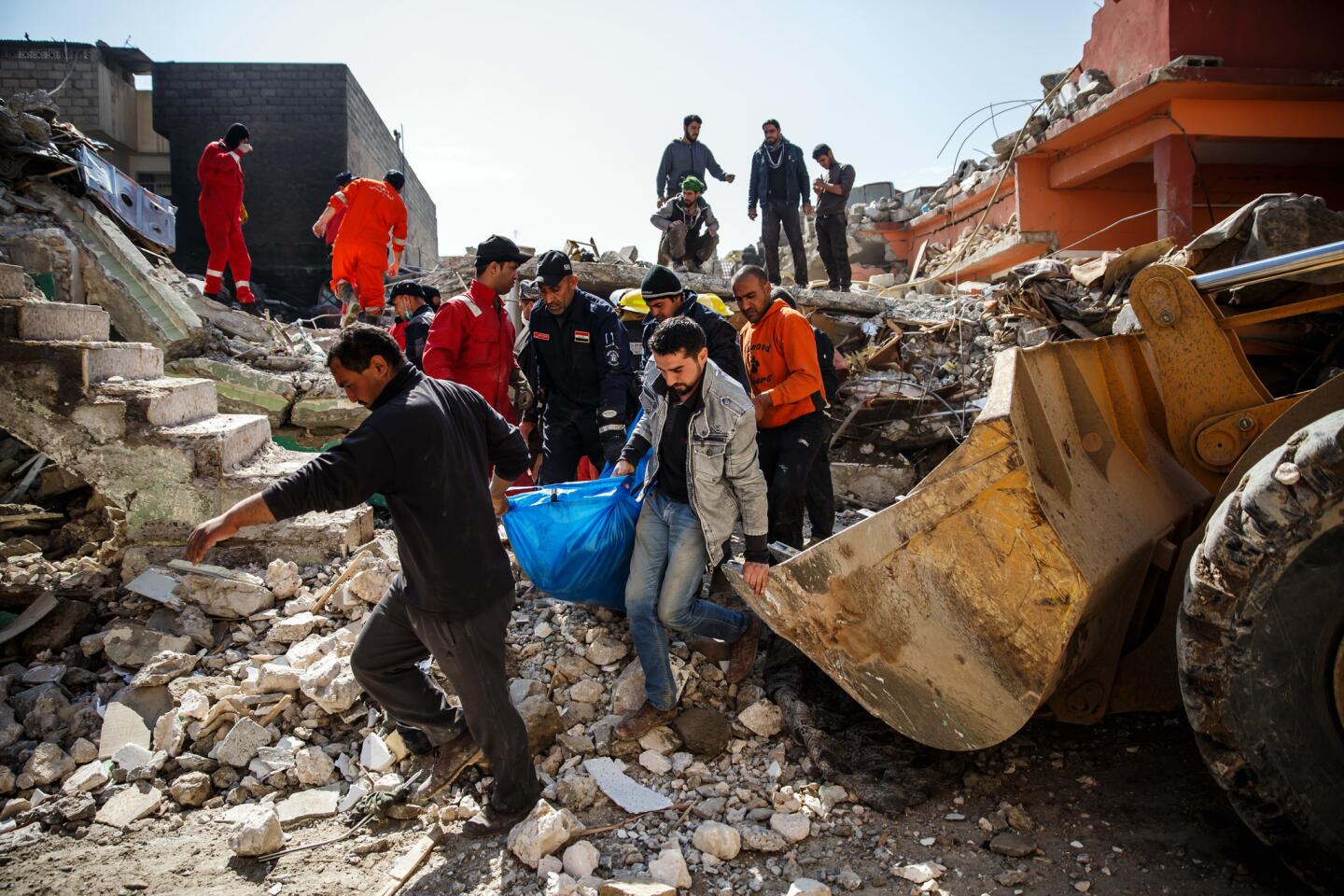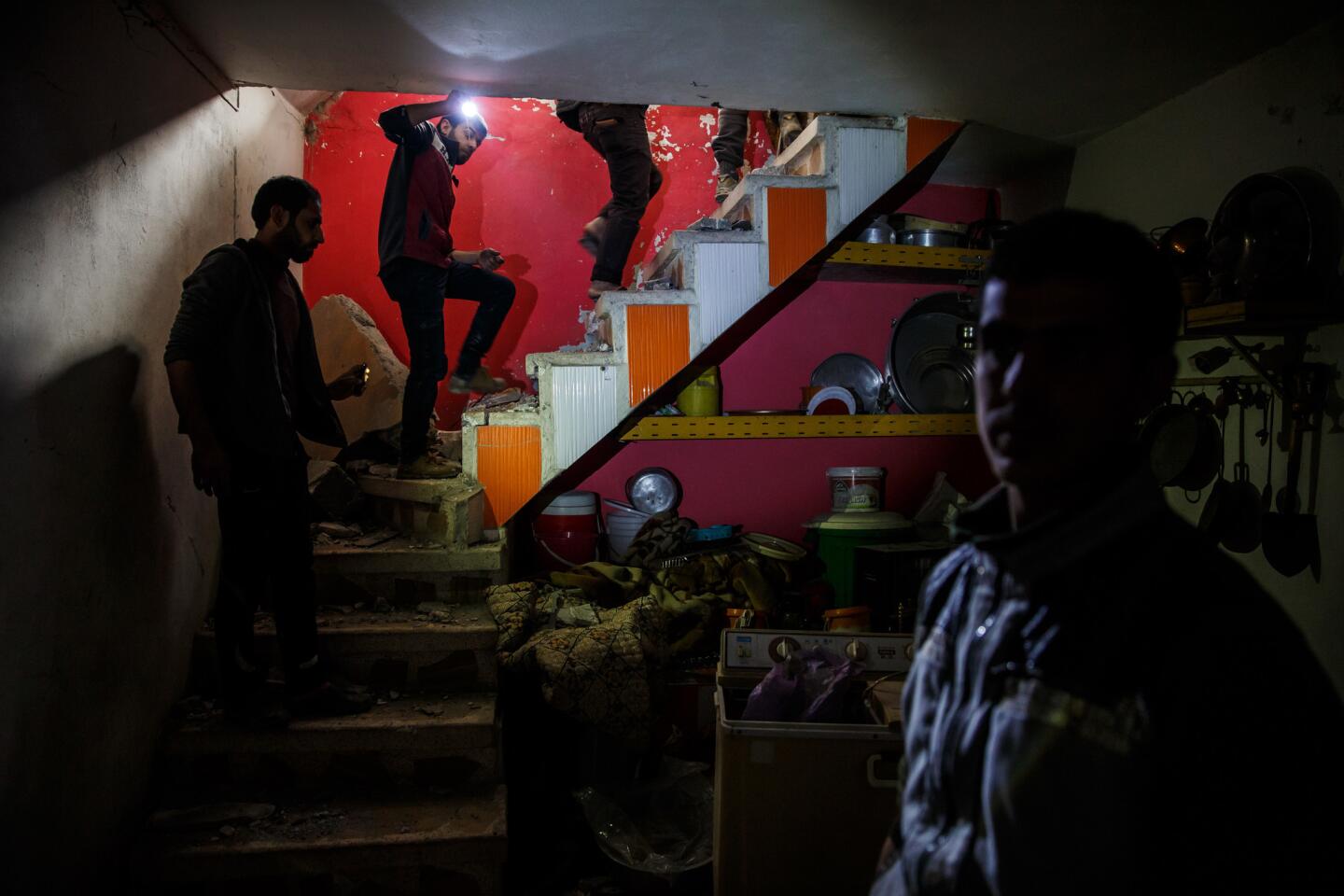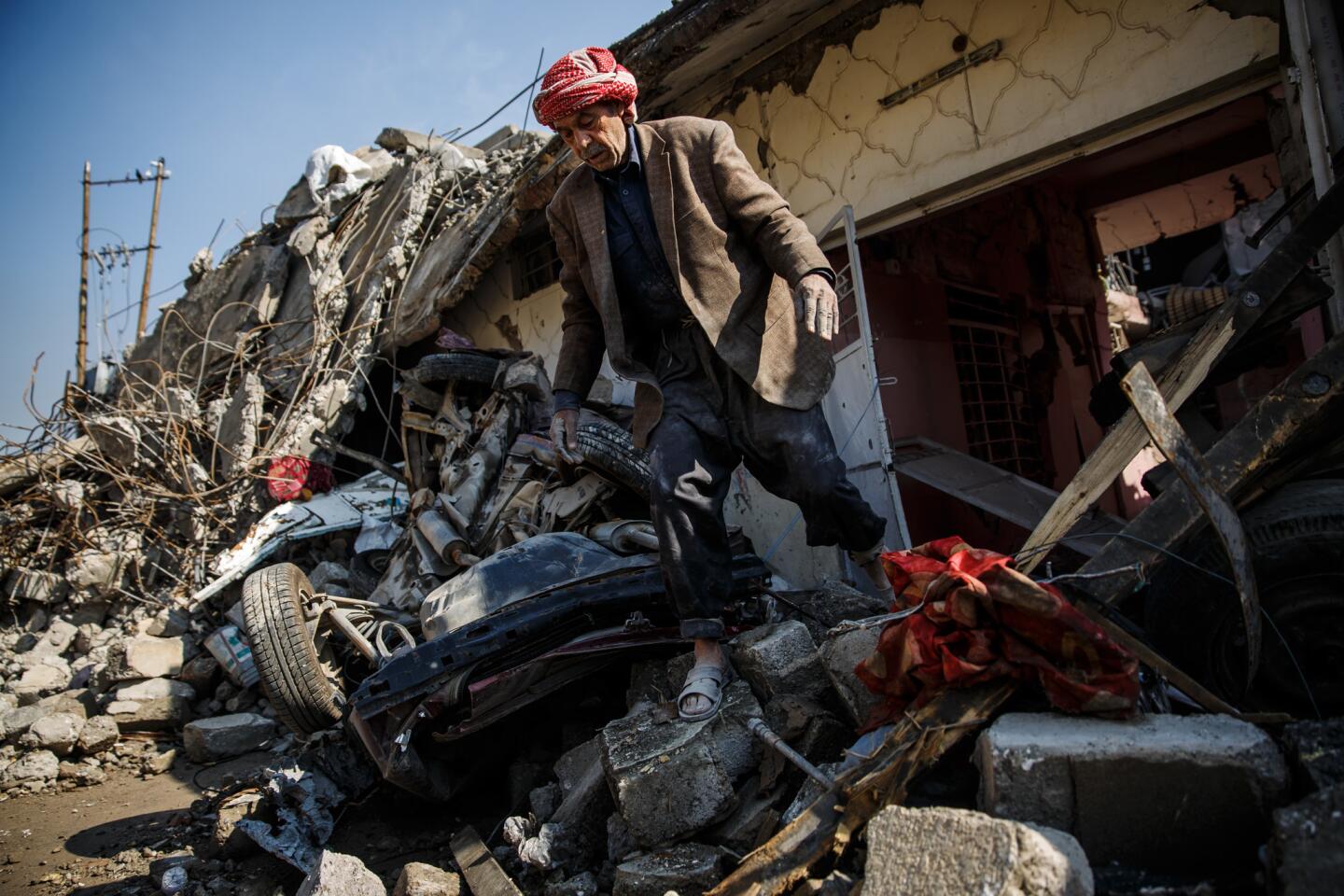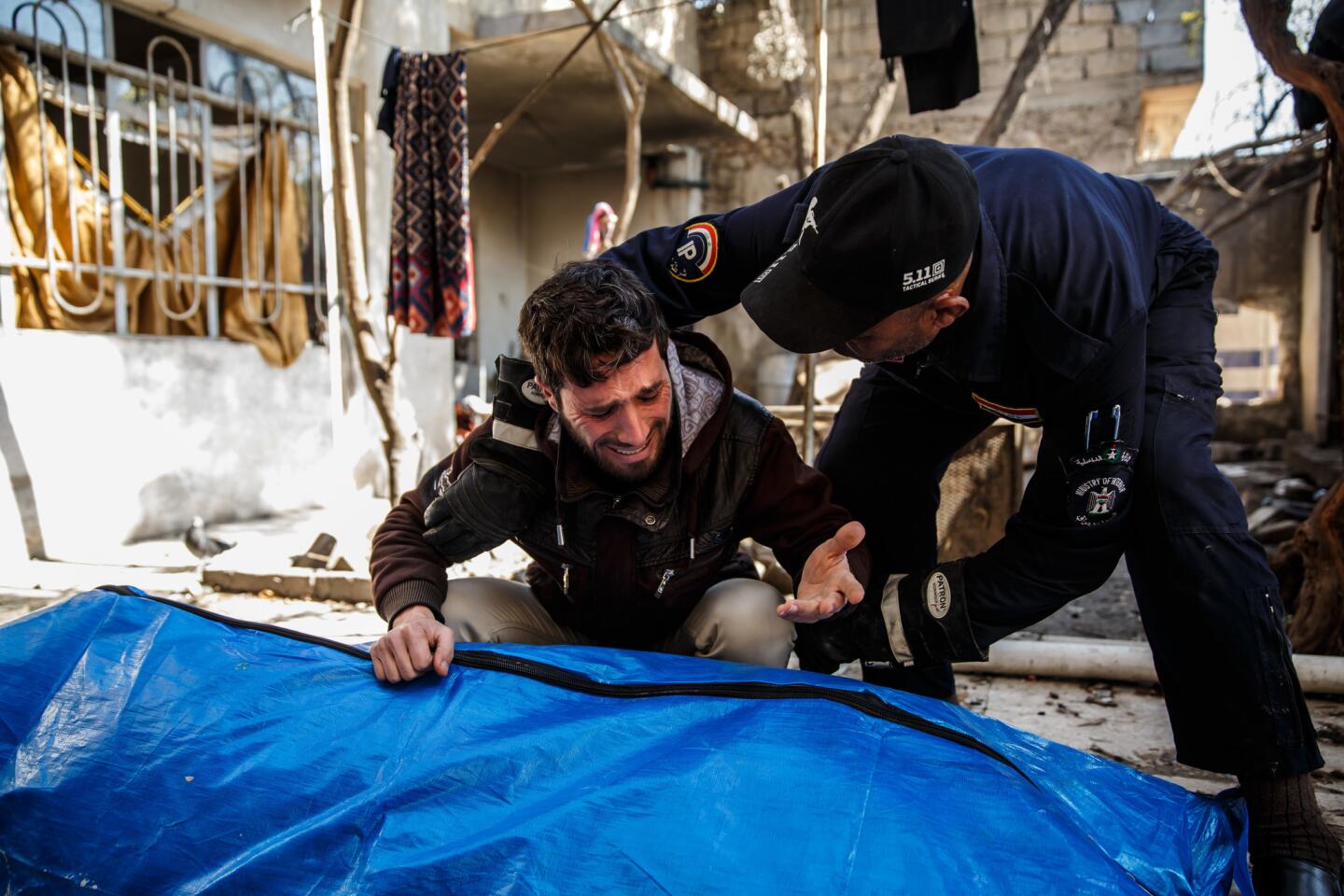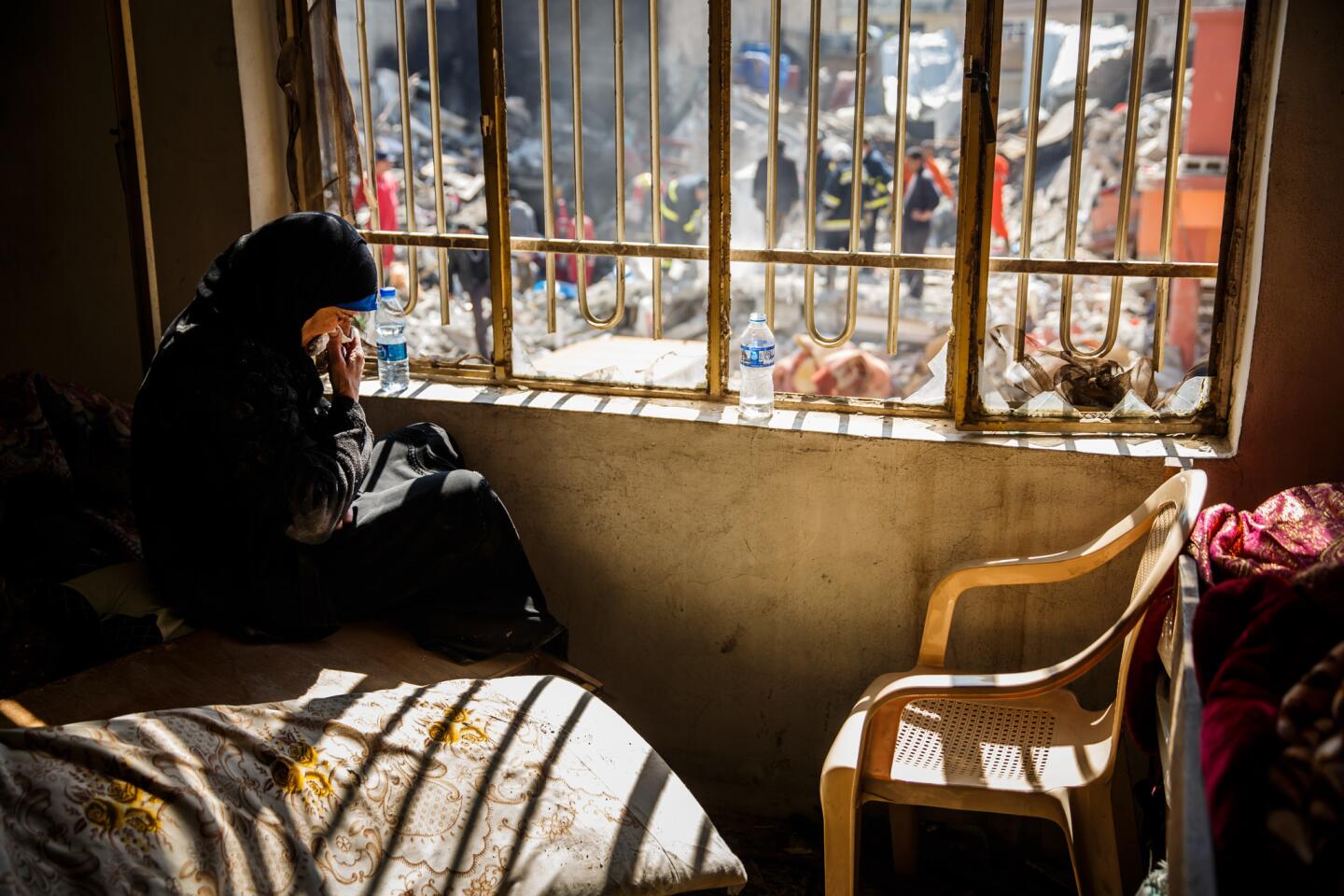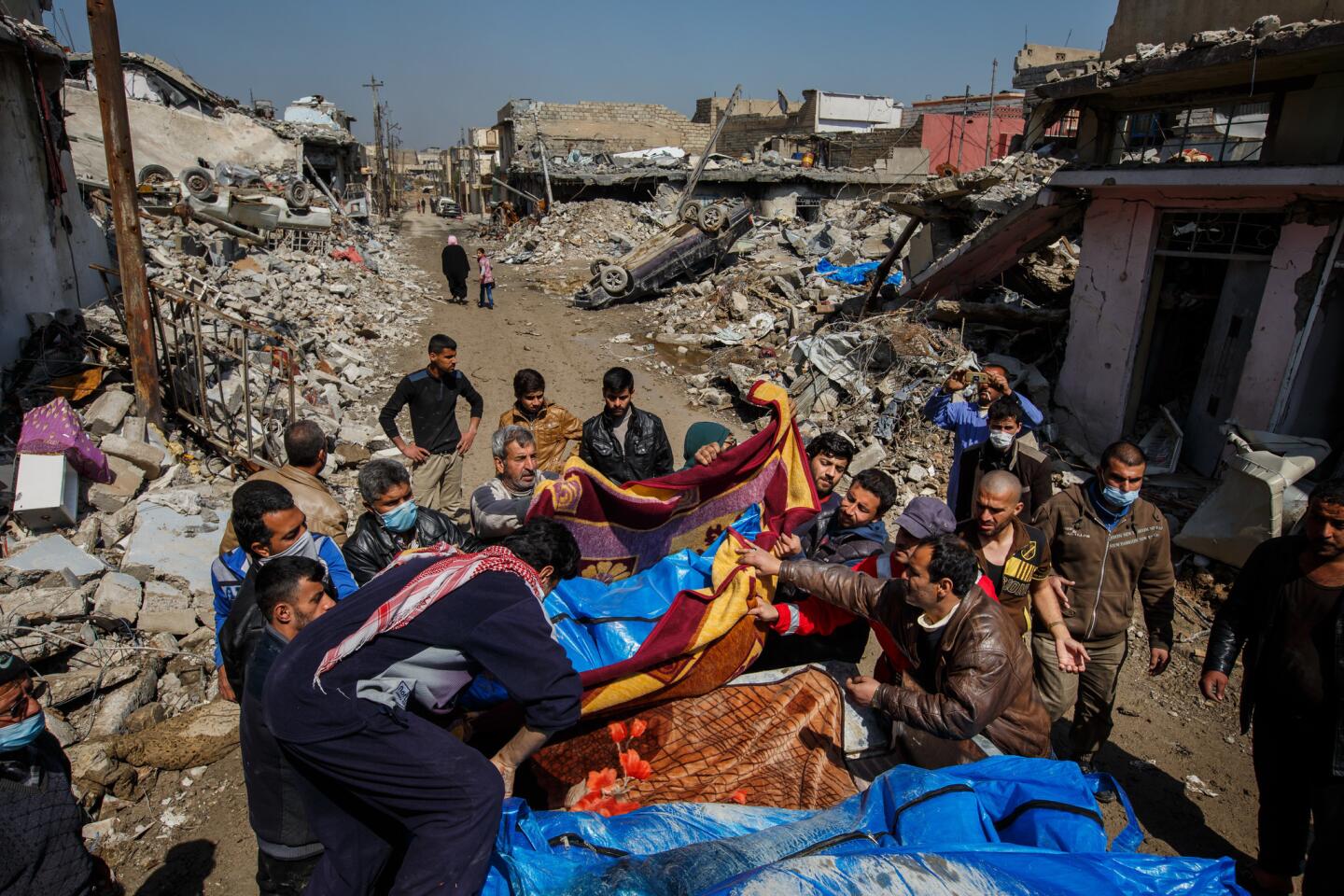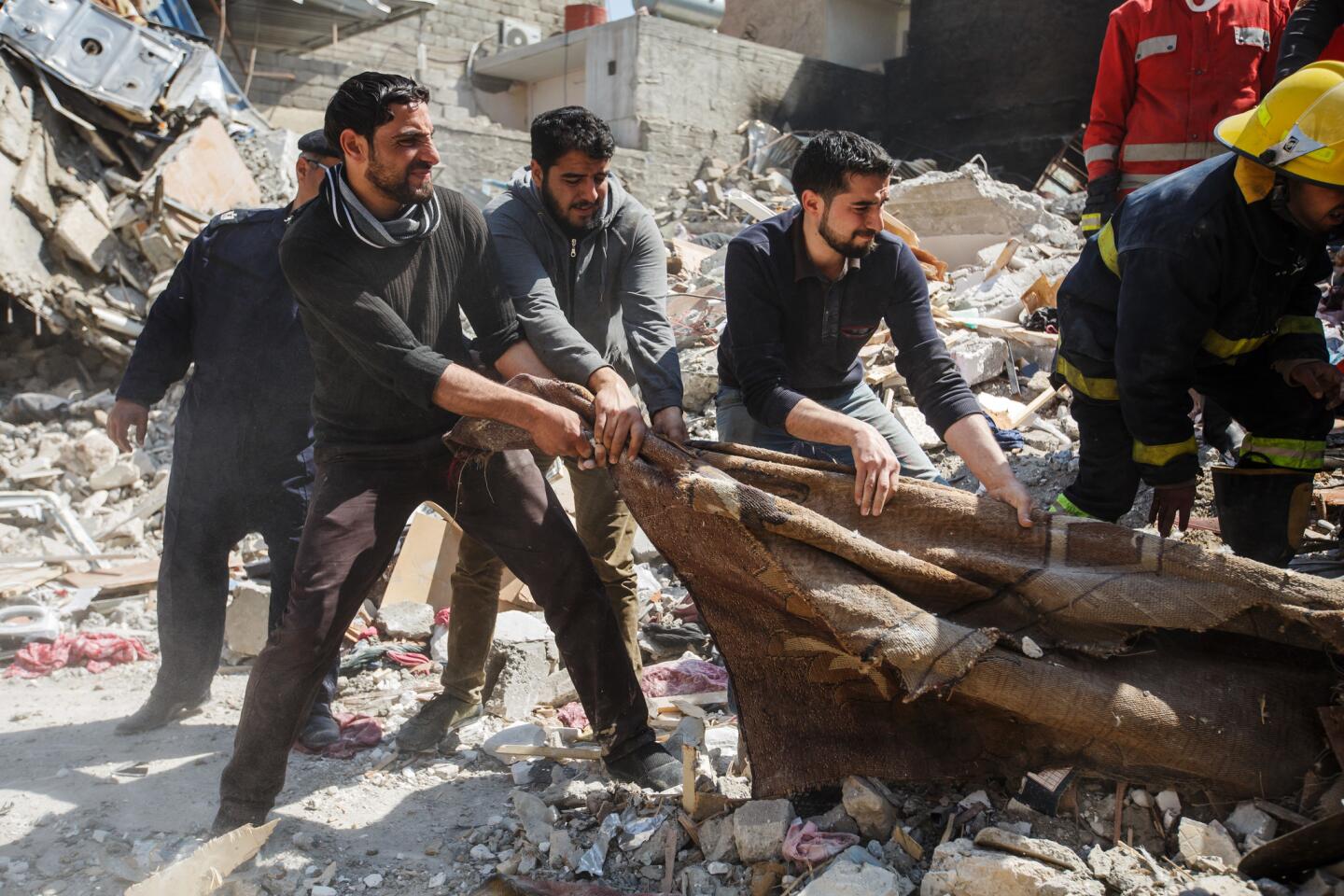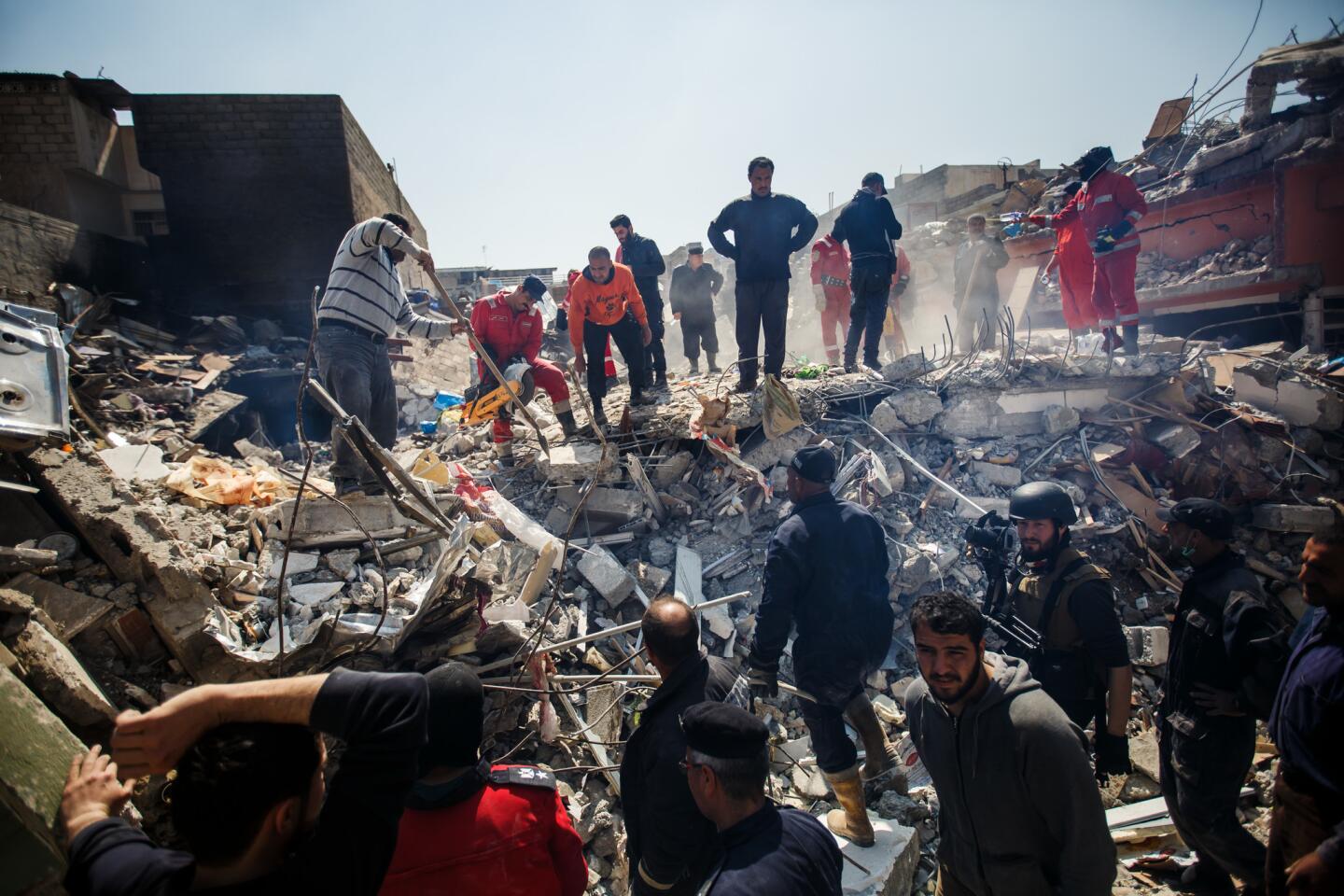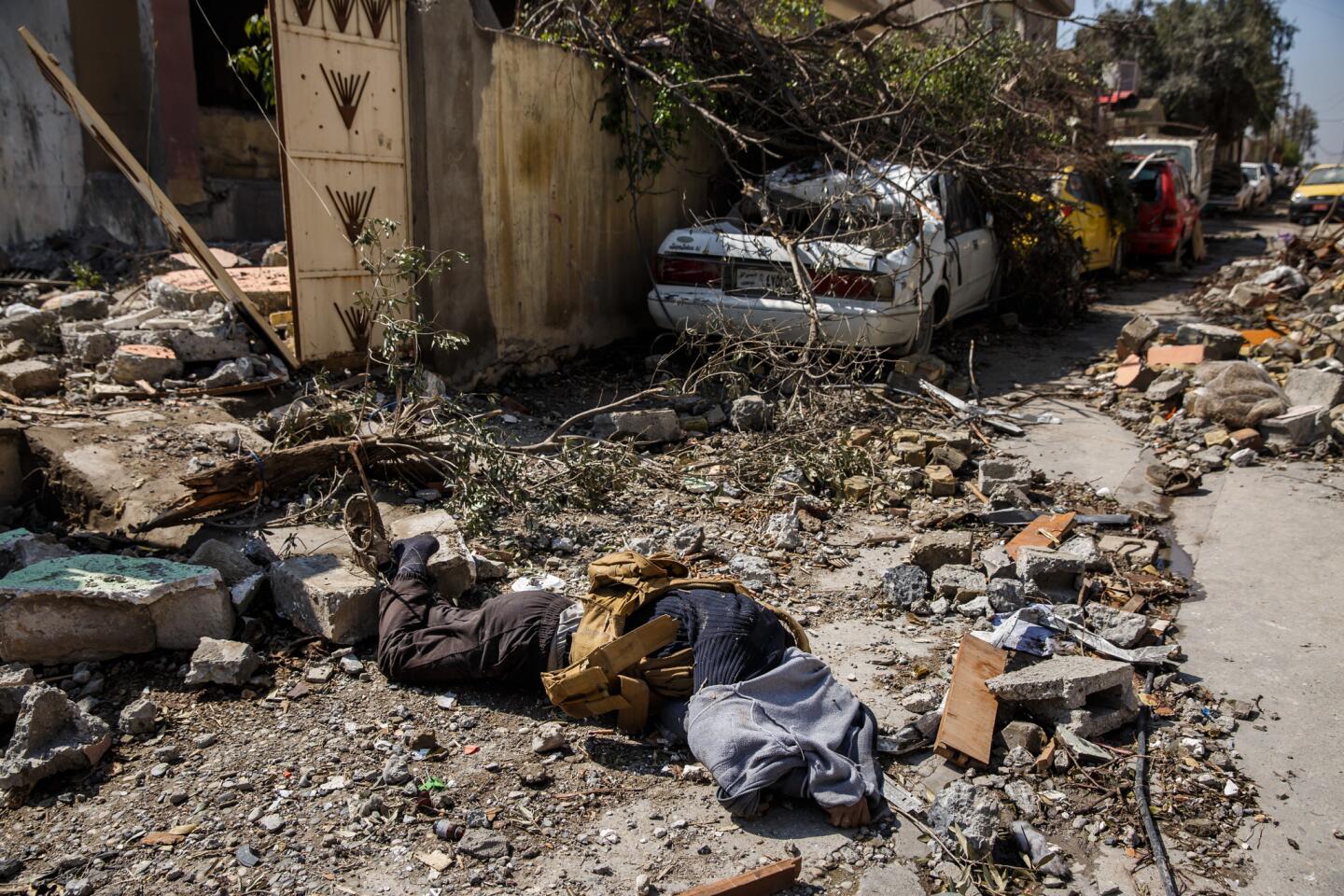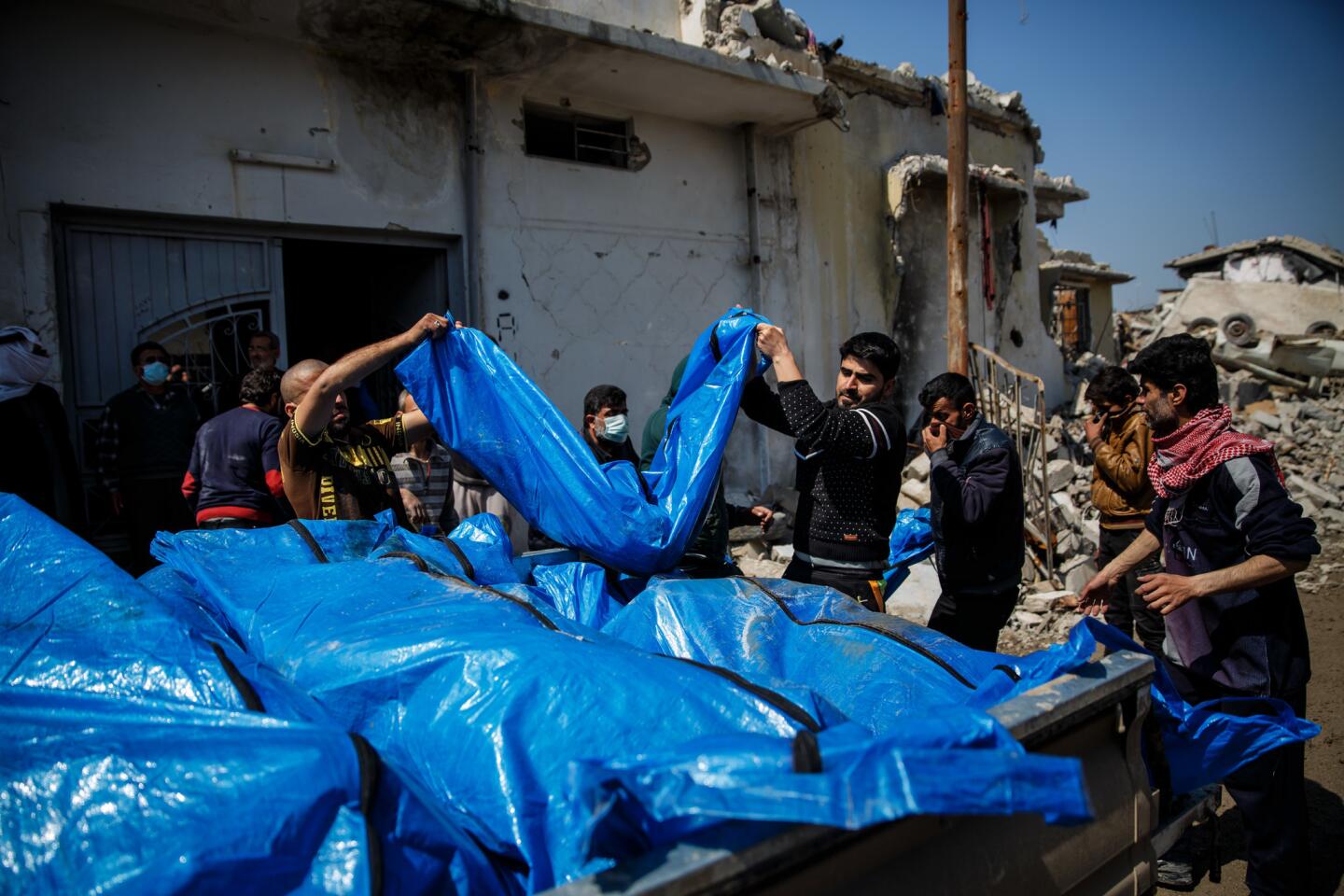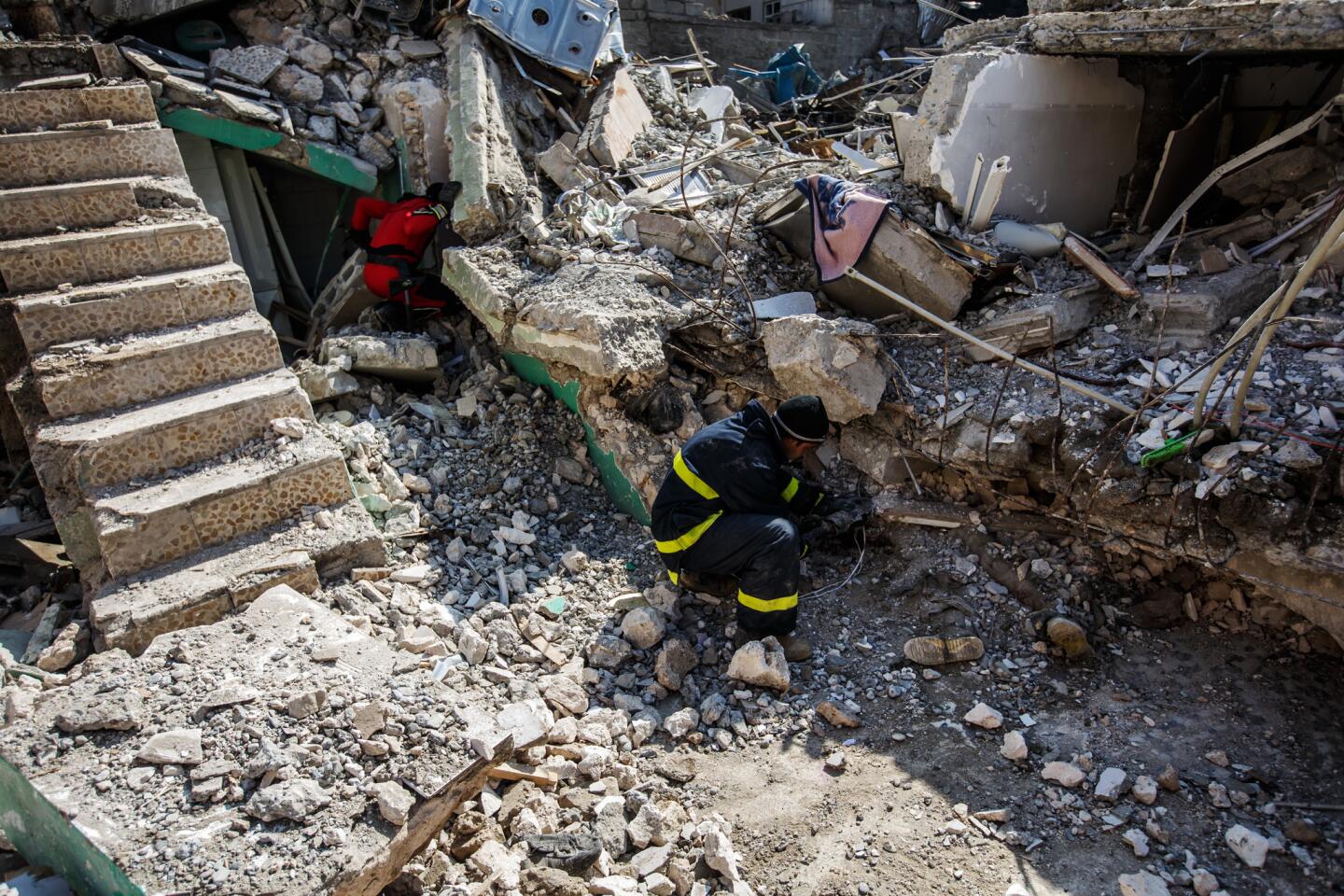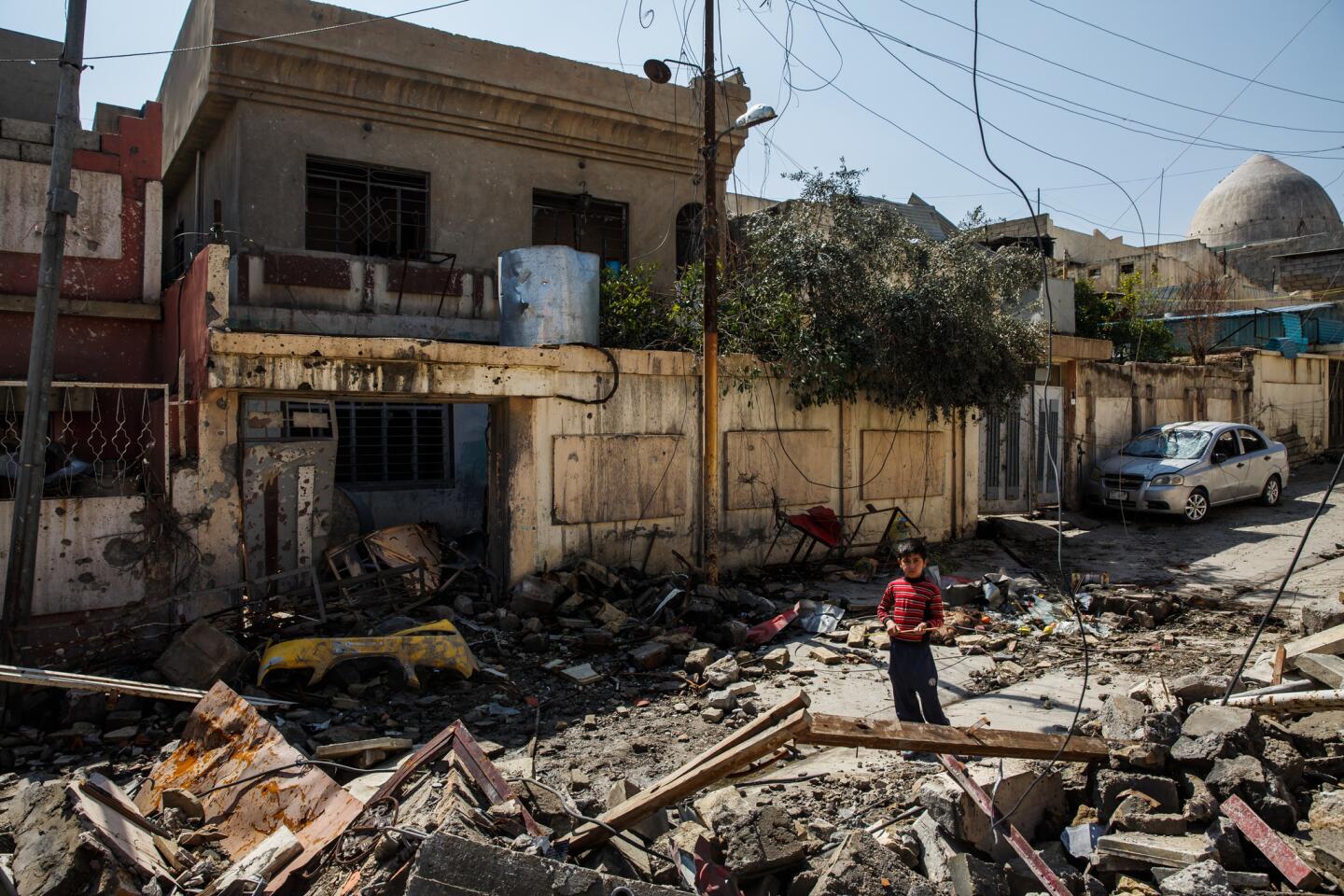U.S. commander says coalition ‘probably had a role’ in mass civilian casualties in Mosul
- Share via
Reporting from Baghdad — The top U.S. general commanding the fight against the Islamic State in Iraq and Syria said that the U.S.-led coalition was probably responsible for a blast that killed more than 200 people.
“If we did it, and I would say there’s at least a fair chance that we did, it was an unintentional accident of war, and we will transparently report it to you,” Lt. Gen. Stephen Townsend told reporters Tuesday via teleconference from Baghdad.
Townsend made the comments in response to witness reports that an airstrike brought down a large apartment block and killed scores of civilians, including women and children, in west Mosul’s Jadidah neighborhood on March 17. If confirmed, the death toll would be among the worst civilian casualty counts for a U.S. military strike in decades.
“My initial assessment is that we probably had a role in these casualties,” Townsend said. “What we don’t know for certain is whether that strike is responsible for the casualties in question.”
“The fact that the whole building collapsed contradicts our involvement,” he said. “The munition that we used should not have collapsed an entire building. So that’s one of those things we’re trying to figure out in the investigative process.”
U.S. and Iraqi investigators have been dispatched to the scene to sift through the rubble and talk to survivors to try to discover what happened. The Iraqi military said its forces were under fire from Islamic State snipers and called for an airstrike, which was followed by a massive explosion.
The Iraqis said over the weekend that evidence suggested that Islamic State militants had rigged a house with explosives and used a car bomb to bring the apartment block down.
Col. Safaa Saadi Jawad of the Iraqi Civil Defense said Tuesday that although explosives might have contributed to the damage, burn marks indicated the strike came from the air above.
The focus of the U.S. investigation, led by Air Force Brig. Gen. Matthew Isler, is whether the airstrike hit the civilian buildings, reducing them to rubble; or whether an accumulation of airstrikes in the area degraded the structural integrity of buildings before they fell; or whether an explosion, either accidental or planted by Islamic State, brought down the structures.
“It could have been a combination of these events,” Townsend said.
He confirmed that warplanes had launched several strikes in the area in recent weeks, but added that much remained uncertain on the ground where entrenched Islamic State fighters have been locked in brutal house-to-house combat with Iraqi forces.
Surviving victims of the strike described Islamic State militants herding civilians into houses at gunpoint ahead of the strike, then stationing snipers on the rooftops to provoke the coalition.
Townsend said Iraqi Counter Terrorism Service forces reported having discovered two nearby buildings that were booby-trapped, with 25 hostages in one and 45 in another.
On Tuesday, Iraqi crews were still sifting through the wreckage. The blast destroyed as many as 50 homes, according to Jawad, who said that the 101 bodies recovered so far included some Islamic State militants who had been living in the neighborhood.
The incident is the latest of several bombing attacks in which dozens of civilians are alleged to have been killed by U.S. forces.
Airwars, a London-based nonprofit organization that monitors civilian deaths from air raids, said the number of civilian casualties has surged as the battle has entered west Mosul, with more than 1,000 claimed fatalities so far this month.
The increase in incidents in Iraq and Syria has humanitarian groups deeply concerned.
The Center for Civilians in Conflict, a Washington-based advocacy and research group, said in a statement Tuesday that there is a “clear and urgent need” for orders to explicitly make the protection of civilians critical on the battlefield.
“The most recent allegation from Mosul, Iraq, if confirmed, could be the single largest loss of civilian life from U.S. military operations since the invasion of Iraq in 2003, and it demands accountability and decisive action to prevent similar incidents in the future,” the group said.
The United Nations high commissioner for human rights, Zeid Raad Hussein, also warned Tuesday about the need for greater protection for civilians, using an alternative acronym for Islamic State.
“The conduct of airstrikes on ISIL locations in such an environment, particularly given the clear indications that ISIL is using large numbers of civilians as human shields at such locations, may potentially have a lethal and disproportionate impact on civilians,” he said.
In December, Townsend granted U.S. advisors greater authority to call in airstrikes more quickly, rather than go through a “strike cell” at headquarters.
Townsend acknowledged that there have been some “minor adjustments” to the written rules of engagement under which the war is conducted. He would not say what the changes were, saying they are “classified,” but the changes were not a factor in the Jadidah strike, he said.
Still, the Trump administration has called for a top-to-bottom review of the current battle plan, which may include loosening restrictions to expedite the defeat of the Islamic State.
The review takes place as the U.S.-led coalition and its ground partners are closing in on Islamic State’s last strongholds in Iraq and Syria. In both countries, militants are mixed among the locals in heavily populated areas.
The Pentagon has acknowledged at least 220 civilian deaths from coalition airstrikes in Iraq and Syria since the U.S. campaign against Islamic State began in mid-2014.
Hennigan reported from Washington and Hennessy-Fiske from Baghdad.
Twitter: @wjhenn
ALSO:
Climate change is real: Just ask the Pentagon
Overweight, tattooed, stoned? The Pentagon may still want you
UPDATES:
2:35 p.m.: This article was updated with reporting from Baghdad.
This article was originally published at 12:55 p.m.
More to Read
Sign up for Essential California
The most important California stories and recommendations in your inbox every morning.
You may occasionally receive promotional content from the Los Angeles Times.
